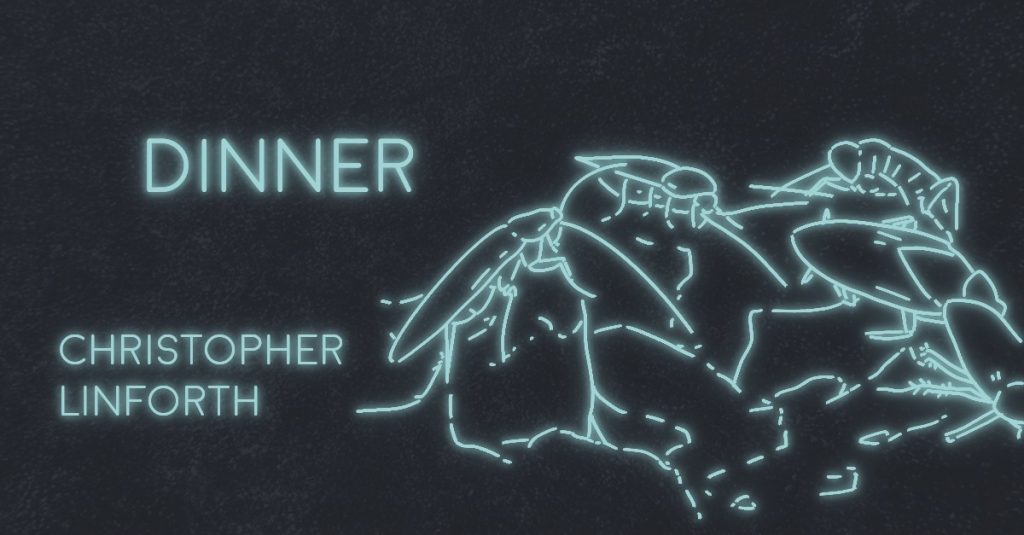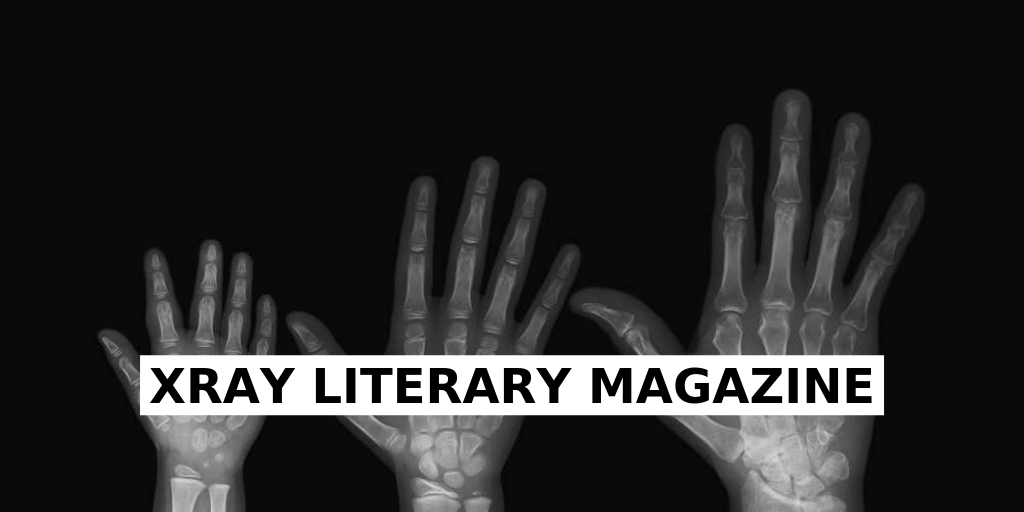
DINNER by Christopher Linforth
At that time in our lives, we rose at dusk for the feeding shift. Still in our underwear, we crept downstairs and into the kitchen. Shiny black bugs skittered across the tile floor. The lazy cockroaches remained on the counter and in the tinfoil containers stinking of rotten noodles; a few silvery beetles disappeared into the seal of the refrigerator. In the living room our mother railed at the television, at the caregiver exiting the house. We heard calls for dinner, thuds on the floor, shouts for our dead father. We rubbed crust from our eyes, then surveyed the leftovers…

